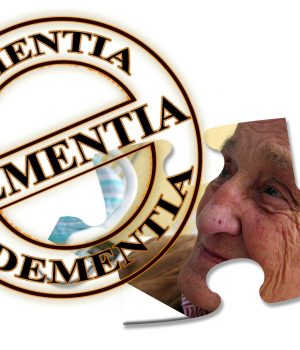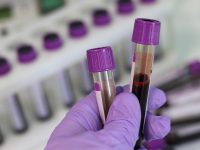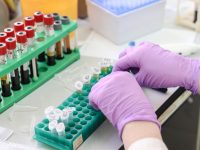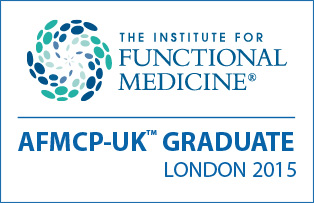On this page information is provided about some of the research that shows that we can optimise our health and reduce risk of dementia later in life. The work of Professor Bredesen is also introduced along with the protocol he has developed called ReCODE. He is the first person to report reversal of memory loss in patients with Alzheimer’s disease. Alzheimer’s disease is the most common form of dementia.
There is a lot of information here so grab a cuppa and take your time.
Is forgetfulness an indication that we could develop dementia in the future?
Probably not. Before we start to worry about our health, taking a good long look at our current lifestyle might highlight potential contributing factors. For example, stress tends to make us more forgetful than usual. So, dealing with the stress or removing it completely may be a solution. But,
- is your forgetfulness more than just occasional?
- are you worrying about your health?
- do you have a close relative who has been diagnosed with dementia?
The dogma is that nothing can be done to help people with dementia, apart from take care of them the best we can. Some medications may help with certain symptoms. But, so far, there isn’t a medication that helps significantly in terms of slowing or stopping disease progression.

Can diet and lifestyle reduce the risk of cognitive decline?
Absolutely! The Finnish Geriatric Intervention Study to Prevent Cognitive Impairment and Disability (FINGER) was completed in 2014. This study was carried out because results from other studies looking at single interventions had been disappointing. In the FINGER study the aim was to look at the effect of a number of different factors to see if cognitive impairment could be prevented. Additional goals were to improve cardiovascular health, mood and quality of life.
The study looked at the effect of diet, exercise, cognitive training and social activities on cognition, mood and quality of life in older people at risk of dementia. In addition, metabolic and vascular risk factors were monitored and managed.
Compared to the control group, who didn’t receive these interventions, the study concluded that it was possible to prevent cognitive decline.
Can diet and lifestyle reverse memory loss associated with Alzheimer’s disease?

Apparently yes! This is much harder to believe. Remember the dogma that nothing can be done? Research carried out by Professor Bredesen has shown that memory loss associated with Alzheimer’s disease, the most common form of dementia, can be reversed.
Professor Bredesen is Professor of Molecular and Medical Pharmacology at the University of California, Los Angeles and Founding President and Professor Emeritus at the Buck Institute for Research on Aging.

He has spent over 30 years researching the basic mechanisms of neurodegeneration. As a result of his research, Professor Bredesen has developed a novel approach to the prevention and treatment of Alzheimer’s disease. Incredibly, he has demonstrated consistent and sustained recovery of memory in patients with Alzheimer’s disease.
Imbalances may result in memory loss
More than thirty six imbalances in the body have been identified that can contribute to memory loss. Professor Bredesen likens Alzheimer’s disease to osteoporosis, a condition where there is an imbalance between bone making (osteoblastic) and bone dissolving (osteoclastic) activities in the body. Addressing these imbalances has the potential to reverse osteoporosis and enhance bone health.
Synapses are important
In the brain we lose memory when we lose the ability to maintain synapses, the junctions between brain nerve cells. Professor Bredesen says that Alzheimer’s diseaseis an imbalance between synaptoblasic (memory making) and synaptoclastic (memory losing) activities in the brain. It is a metabolic disease that can be reversed, just like osteoporosis. Maintaining our memory is a balancing act.

So what is Professor Bredesen’s secret?
Many of the imbalances that Professor Bredesen highlights are influenced by diet and lifestyle. However, it isn’t always enough just to follow a healthy diet and do some exercise. We can be doing this and yet still have imbalances that could be contributing to our risk of developing dementia as we get into our sixth, seventh or eighth decades. A targeted approach is needed. In particular, developing knowledge about what a healthy diet and lifestyle is that will correct the imbalances, nurture the brain and keep it healthy.
A game of numbers

If you have managed to read some of Professor Bredesen’s papers you will notice an obvious criticism. The number of patients he reports on is low. Writing papers takes time and Professor Bredesen himself, during a conference in London, reports that numbers are now in their thousands. Studies have advanced since his first paper was published in 2014 (HERE) in which only ten patients were reported. At that time, nine out of the ten patients improved significantly on his programme which was then called Metabolic Enhancement for Neurodegeneration (MEND).
Unprecedented results
Even though the numbers are relatively small this is not a reason to discount this research, especially if you understand the principles of Functional Medicine. You can read more about Functional Medicine HERE. More practitioners are being trained in what is now known as the Bredesen Protocol or ReCODE (Reversing Cognitive Decline). The most important thing to note is that, even though patient numbers are relatively small, Dr Bredesen is getting unprecedented results that far outweigh any result seen in a single drug clinical trial.
Testing is crucial
Blood tests are now available in the UK that can help to identify many of the imbalances that may lead to memory loss. There are many contributors to Alzheimer’s disease and each person has their own personal mix of them which is why testing is so important. Typically, one person could have memory loss with fifteen of the imbalances and another person could have memory loss with fifteen completely different ones. So you need to start somewhere, with the blood testing, and then drill down to the underlying causes of the memory loss for each individual.

More than thirty six imbalances
This is why Alzheimer’s disease is such a tough nut to crack and why drug research has failed to identify a drug that helps this disease. It is also tricky to carry out clinical trials like the gold standard randomised controlled clinical trial (RCT). The RCT is what doctors and consultants look for when they make treatment recommendations. RCTs only allow a single variable whereas in Alzheimer’s disease there are more than 36 of them!
In the UK most doctors don’t use a Functional Medicine approach and still need positive results from a RCT before they can recommend ReCODE to their patients. What is needed is a clinical trial that demonstrates the effectiveness of a multimodal approach in the treatment of Alzheimer’s disease.

How effective is a multimodal approach in the treatment of Alzheimer’s disease?
Professor Bredesen is planning studies to show this but the results will take years to realise. In the UK the charitable foundation AIM has provided funding for a research review that looked at all the studies that examined the effect of diet and lifestyle on cognition.
The review was carried out to determine if multimodal (changes to diet and lifestyle) non-pharmacologic (meaning not using drugs) interventions were effective for improving cognitive function. The conclusion was that there was potential for cognitive improvement.
In the reviewed studies, ninety percent of participants were reported to have:
“cognitive improvements, stability with their dementia or a delay in their decline”
So this review supports the idea that when multiple factors are addressed we can improve our cognition, get some stability in the disease process or delay the progression of the disease.
Where does that leave us?
After learning about this amazing progress there is hope, rather than hopelessness, for those who are proactive with their health. Perhaps hope also for those who have recently been diagnosed with Alzheimer’s disease. It is not known just how long intervention can be delayed before it is unsuccessful so action is needed sooner rather than later. As the brain deteriorates, it will likely become more difficult to bring about any improvements let alone reversal.
We can’t delay

Can we afford to wait until our forgetfulness turns into mild cognitive impairment (MCI) or Alzheimer’s disease? Professor Bredesen has indicated that it is still possible to help people with later forms of the disease in some cases. However, the extent of improvement will vary depending on what is causing the decline and how much damage has already been done. It is possible for patients to return to independent living even when their MoCA score is very low (MoCA is a way of assessing how severe the disease is and is also used as a way of monitoring progress. Its full name is Montreal Cognitive Assessment). This has to be a good thing because it helps to improve the life of patients with Alzheimer’s and can help to lift the stress of the disease from the patient, their carer and their family.
Take action early
The message Professor Bredesden gives is don’t wait to get a diagnosis. The time to take action is when we have subjective cognitive impairment (SCI), which is when we know something is wrong but the tests can’t pick it up. He says that this is when we can expect a full recovery. In fact he recommends that everyone in their 40s and 50s get tested so they can be proactive in preventing deterioration in cognition. The longer we wait the greater the difficulty in reversing cognitive decline will become, and there will be reduced likelihood that a full recovery will be made.




